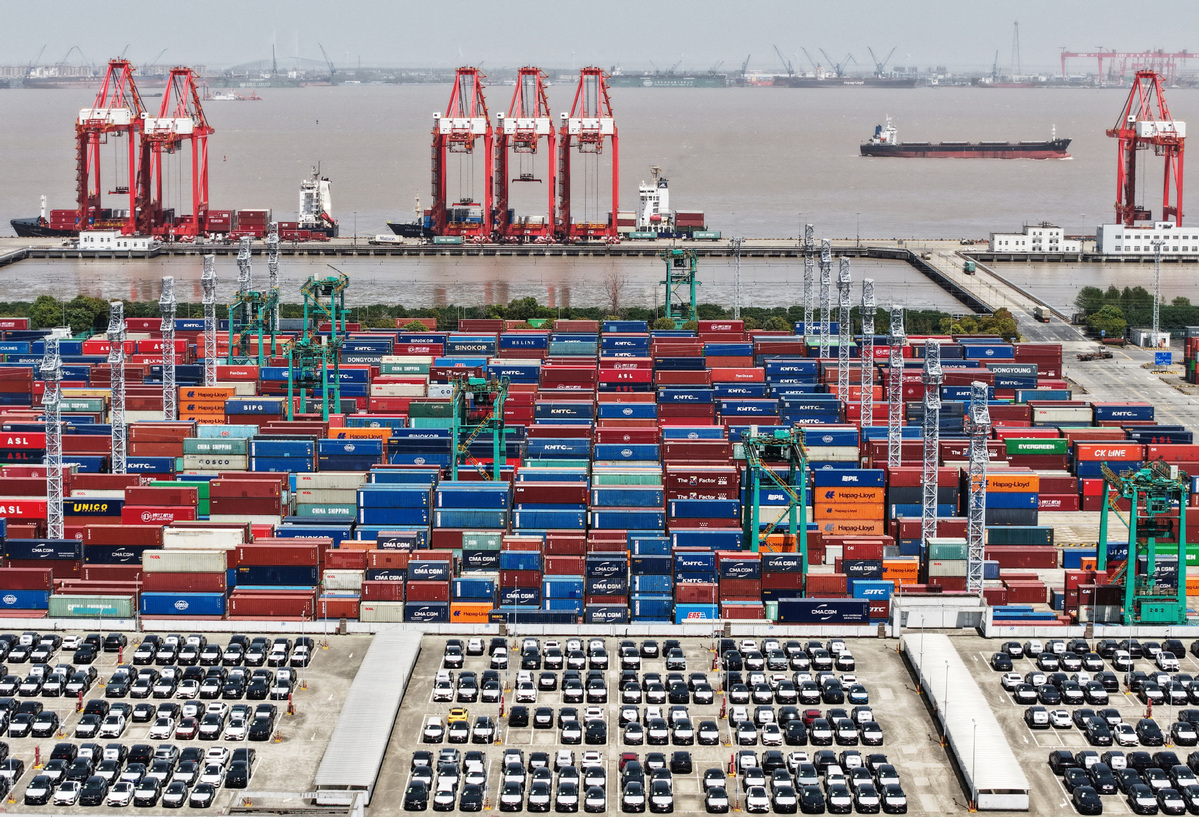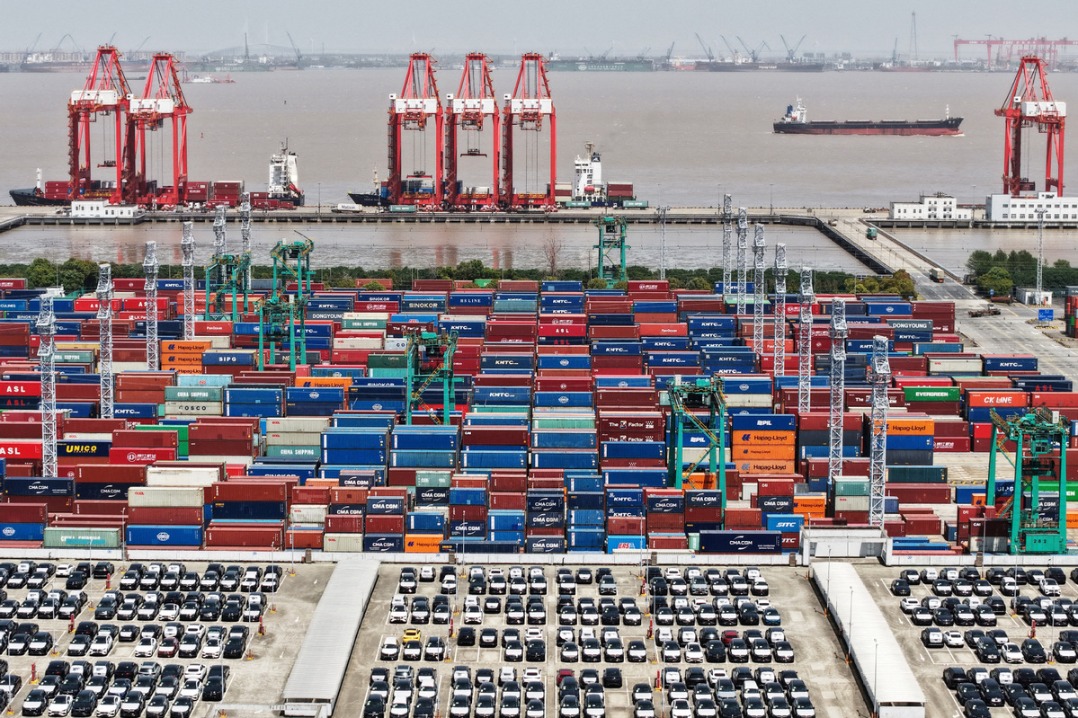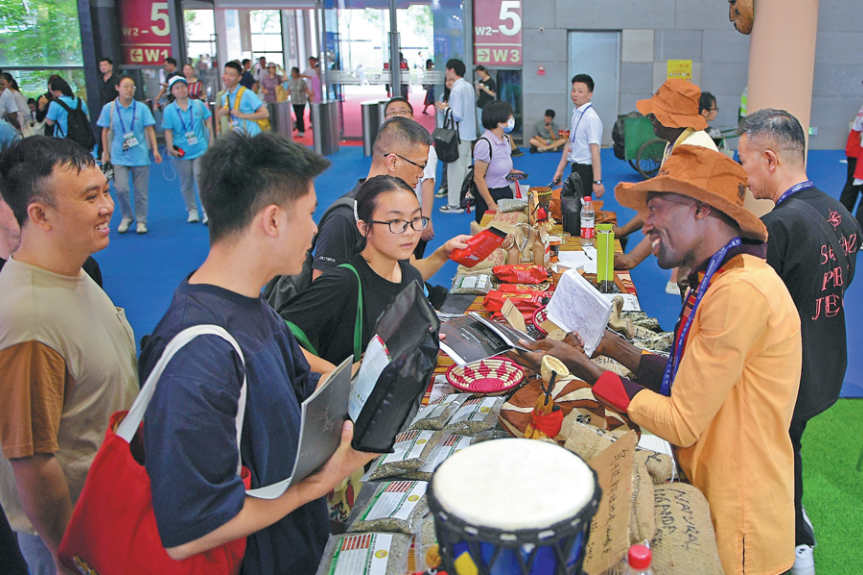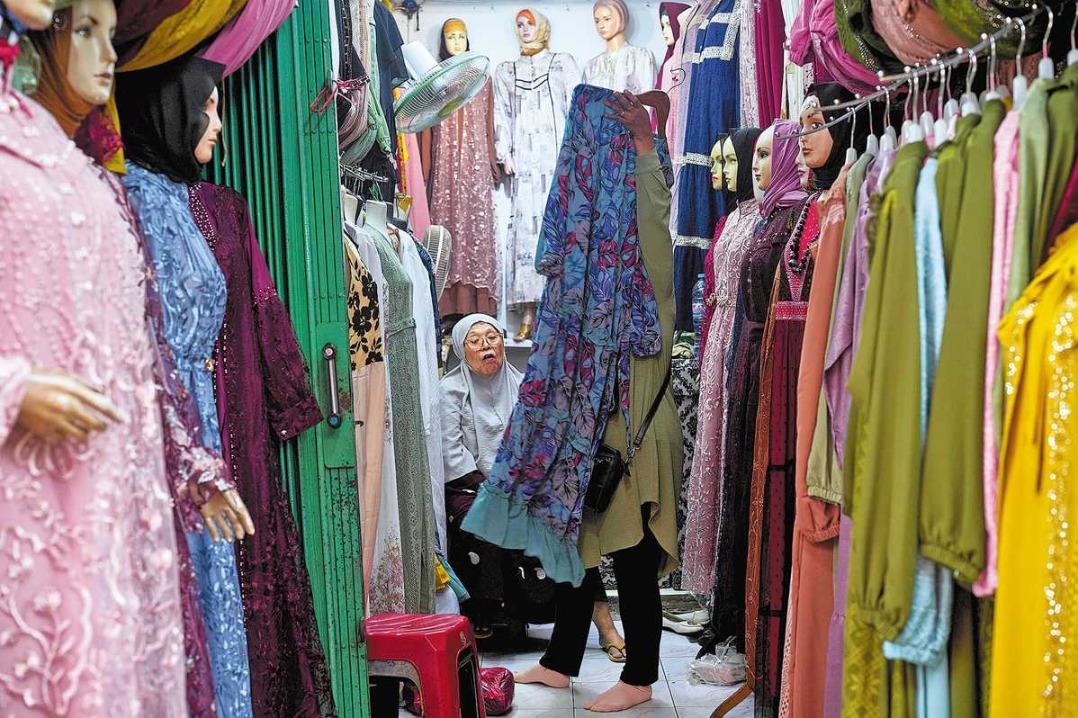Washington's reliance on China goods highlighted


A wide range of US companies are facing steep losses in revenue amid the reignited trade war, across such key sectors as automobiles, electronics, medicine, clothing, aerospace, agriculture and retail consumer goods.
On April 4, China halted all shipments of seven types of rare earth metals, as Beijing began a new policy of tight export controls on the vital elements in response to US President Donald Trump's steep tariffs imposed two days earlier.
They "could have disastrous consequences for American manufacturing and the military power", The New York Times reported on April 15.
The new trade war has underscored the US' dependence on Chinese imports, analysts note. The "strategic decoupling" of the United States from China, urged on Nov 27, 2024, by Jamieson Greer, who's currently the US Trade Representative, appears increasingly unobtainable to observers.
Stephen Lamar, CEO of the American Apparel & Footwear Association, told CNBC: "With prohibitively high tariff levels on US imports from China, many companies have no choice but to cancel orders … new tariff costs are not accurately presented or predictable until the goods arrive at the port, and the high rates are generating bills that can't be paid. That is not a risk or burden small businesses can sustain."
Inflation caused by the tariffs has been predicted to affect US citizens in many aspects of their daily lives. They had been buying many previously affordable household items from Amazon, Walmart, Target and other online stores.
Michael Aziz, an internist and regenerative medicine specialist, was quoted by the UK's Independent on April 11 that the resulting price increases on drugs "will be mostly absorbed by patients, retail pharmacies versus insurance companies".
Aziz said: "The rapid application of those tariffs leaves doctors and patients totally unprepared. Many will skip their meds if they can't afford those generic drugs."
Reacting to China's reciprocal tariffs' impact on Apple iPhones and other US smartphone and computer brands, Trump relented, and on April 11 paused new US tariffs on electronics for 90 days.
Wedbush Securities analyst Dan Ives said in a post on social media X in early April that "the concept of making iPhones in the US is a nonstarter". Ives estimated that a made-in-China iPhone, which now costs $1,000, would jump to over $3,000 if produced in the US.
In a 2024 video of Apple CEO Tim Cook, posted on X on April 11 by a CNBC reporter, he emphasized the irreplaceable nature of Chinese engineering skills and advanced tooling facilities and their concentration in one location as critical to the success of Apple products, more so than the benefit of lower labor costs.
Skills irreplaceable
The reason for Apple's reliance on China, Cook stated, "is because of the skill, the quantity of skill in one location, and the type of skill … the precision that you have to have in tooling and working with the materials that we do are state of the art".
"And the tooling skill (in China) is very deep. … In the US, you could have a meeting of tooling engineers, and I'm not sure we could fill the room. In China, you could fill multiple football fields."
The rare-earth export suspension by China has highlighted how much the US has come to rely on uniquely Chinese products to preserve its stated strategic defense needs as well as its economic stability, analysts say.
China is a leader in the mining and processing of valuable metals critical to the manufacture of airplanes, automobiles (both electric and gasoline-fueled), computer chips, LED lights, MRI machines and wind turbines.
The US has only one active rare-earth mining facility, in Mountain Pass, California, US media reported.
"It's not just a capital problem. It's a 'know-how problem' for the US and other countries," said Gracelin Baskaran, research director at the Center for Strategic and International Studies at an online news conference last week.
Baskaran said that US production accounts for less than 1 percent of global rare earths.
It may take five to 10 years for the US to be able to produce the "heavy" types of rare earths needed by the military, said rare-earths expert Luisa Moreno, director of Defense Metal Corp.
An April 14 CSIS report described the Chinese rare-earth restrictions as highlighting vulnerabilities in US military readiness.
shiguang@chinadailyusa.com

































